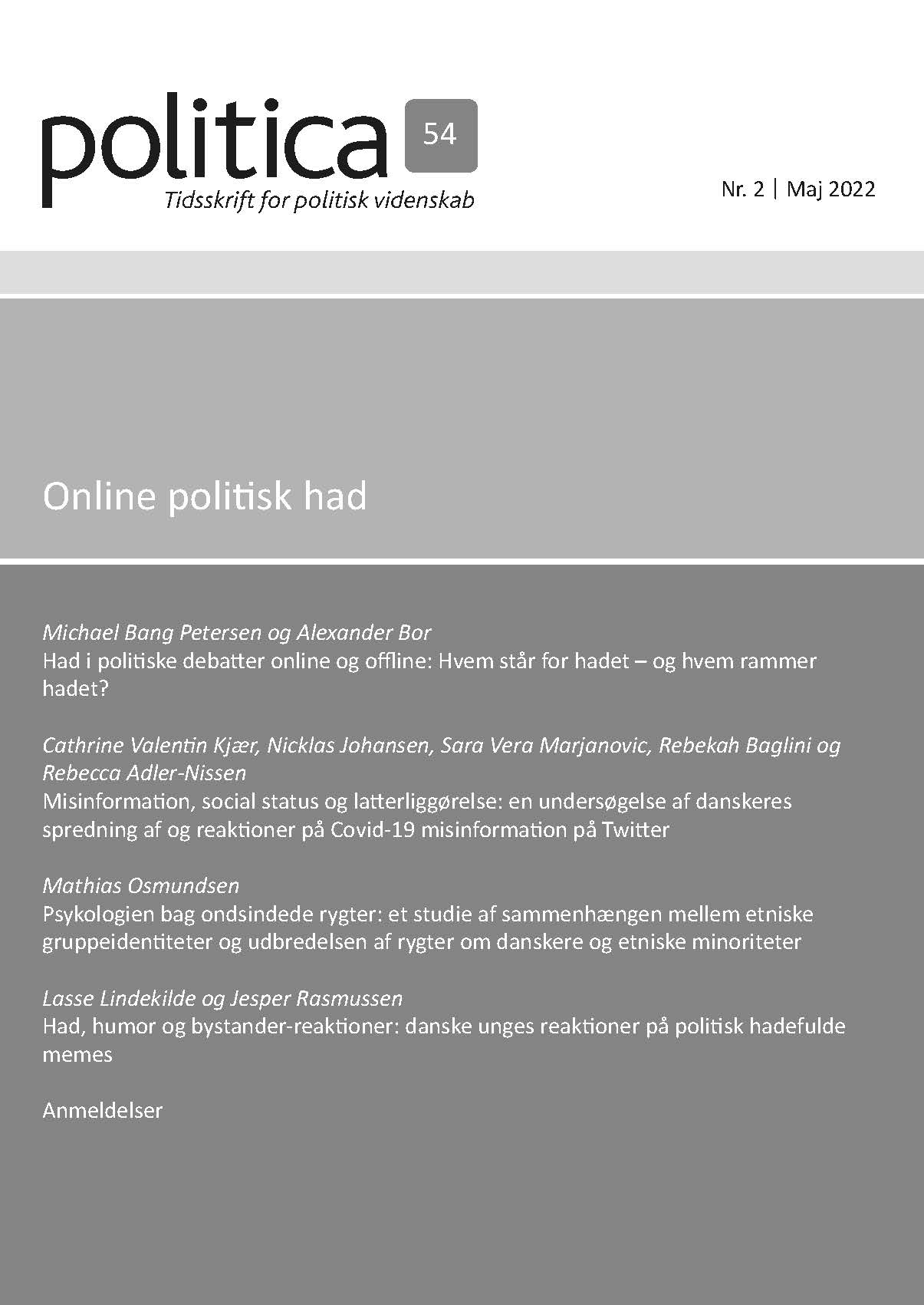The psychology behind malevolent rumors: A study of the relationship between ethnic group identities and the spread of rumors about majority Danes and ethnic minorities
DOI:
https://doi.org/10.7146/politica.v54i2.132527Nøgleord:
conspiracy theories, social media, social identity, ethnic majority-minority relationsResumé
With the advent of social media, fake news, conspiracy theories, and misinformation have emerged as major societal concerns. But why do citizens disseminate untrustworthy information online? I examine this question by testing how identification with societal groups affects citizens’ uptake of malevolent rumors about competing groups. I test the theoretical expectations in a survey study administered to large groups of majority Danes and ethnic minorities living in Denmark. The results show that participants identifying as Danes or immigrants are much more likely to believe and share malevolent rumors about the other group, and that these associations are mostly driven by outgroup anger rather than ingroup love. The article deepens our understanding of majority-minority relationships in a digital world as well as the challenges that must be overcome in order to stop the spread of online misinformation.
Publiceret
Citation/Eksport
Nummer
Sektion
Licens
LicensOphavsretten tilhører Politica. Materialet må ikke bruges eller distribueres i kommercielt øjemed.





